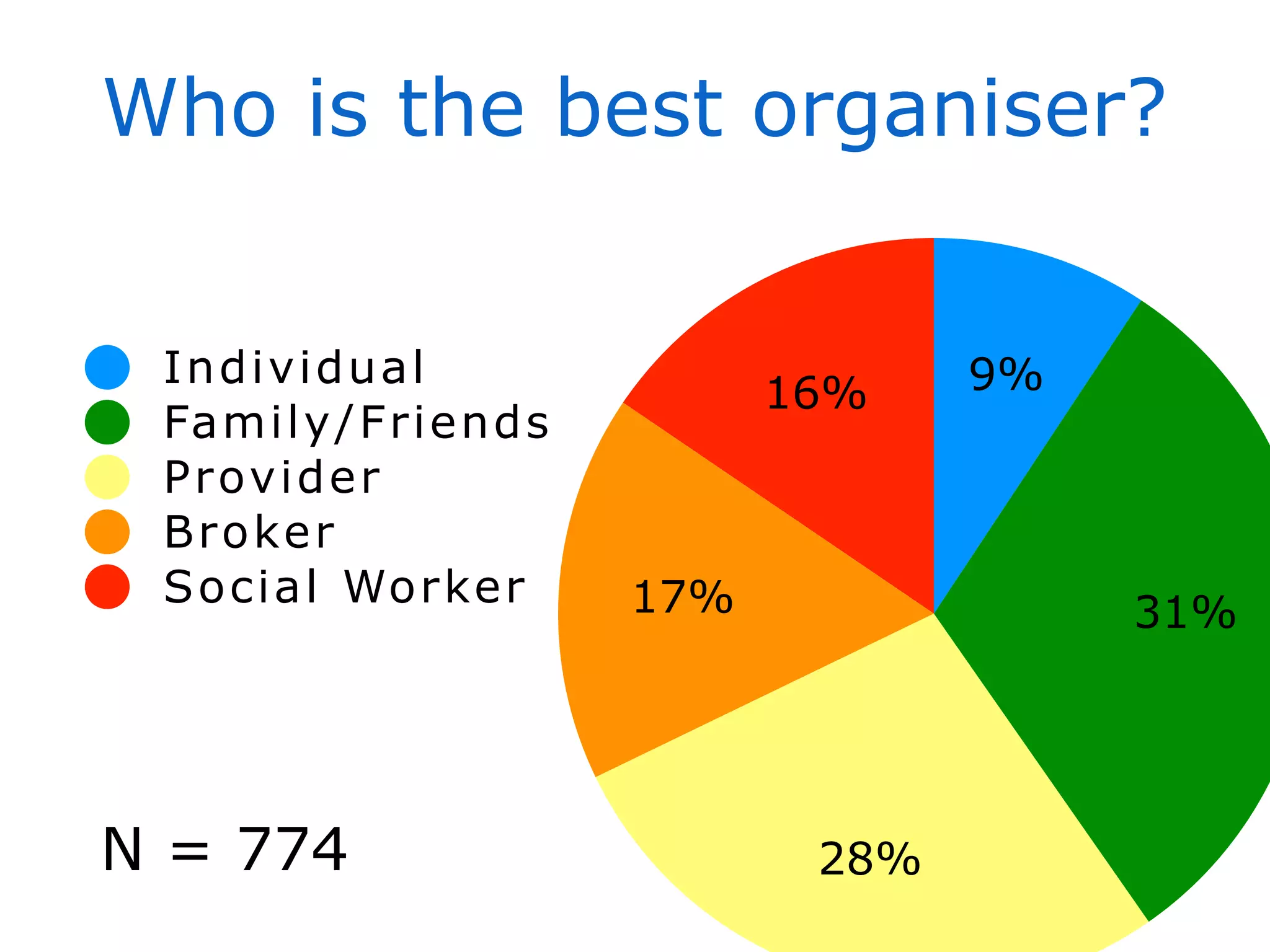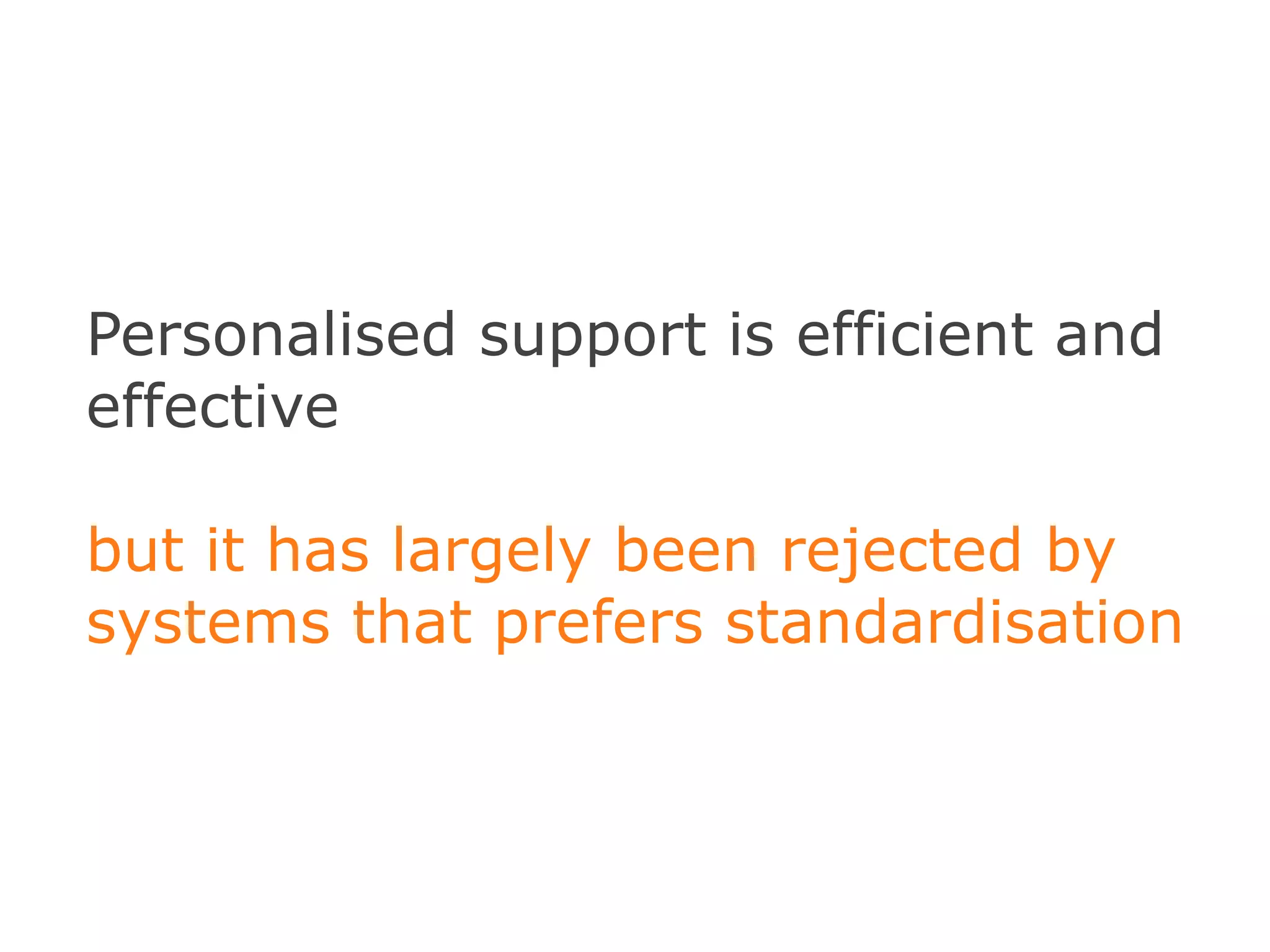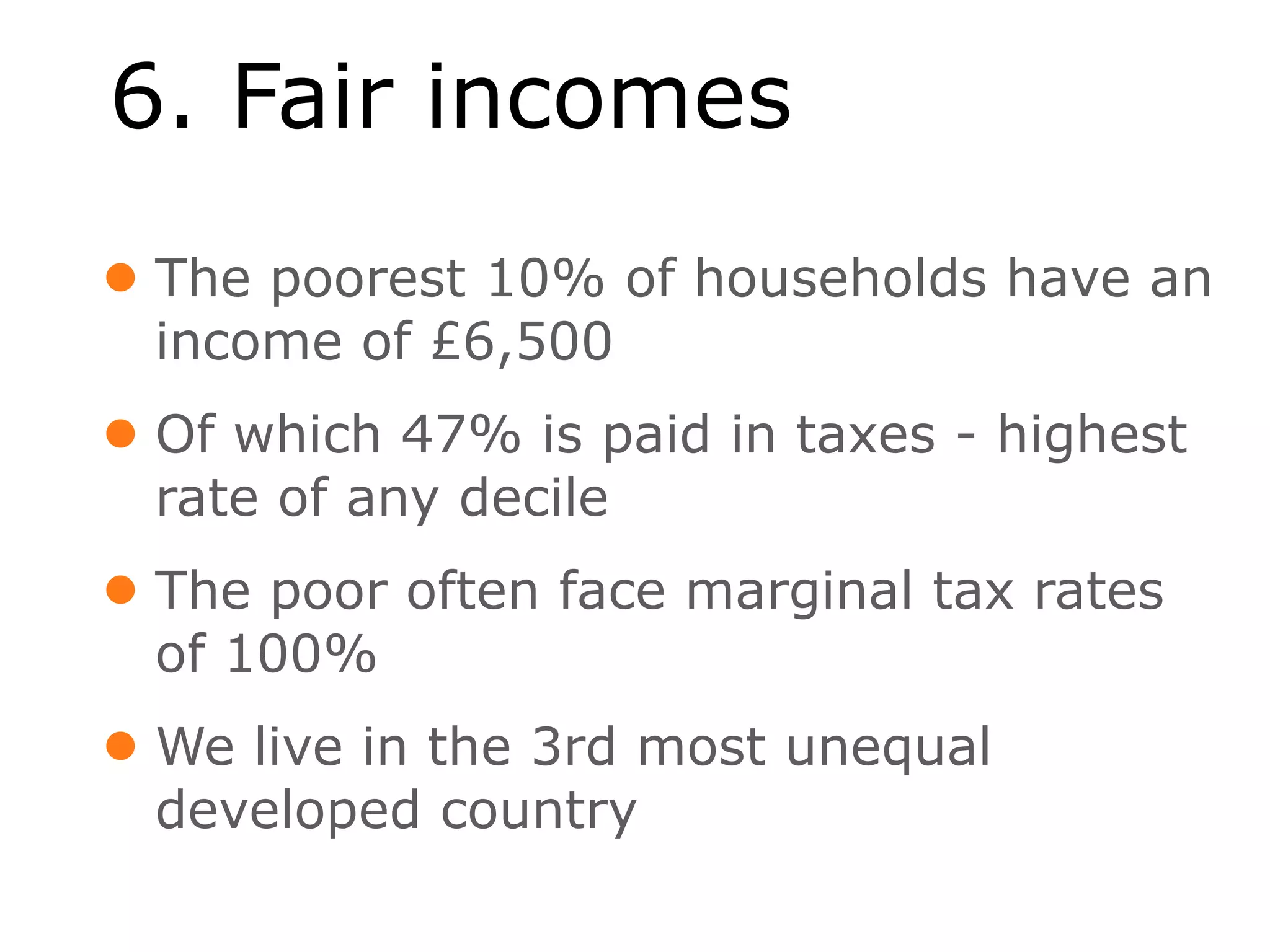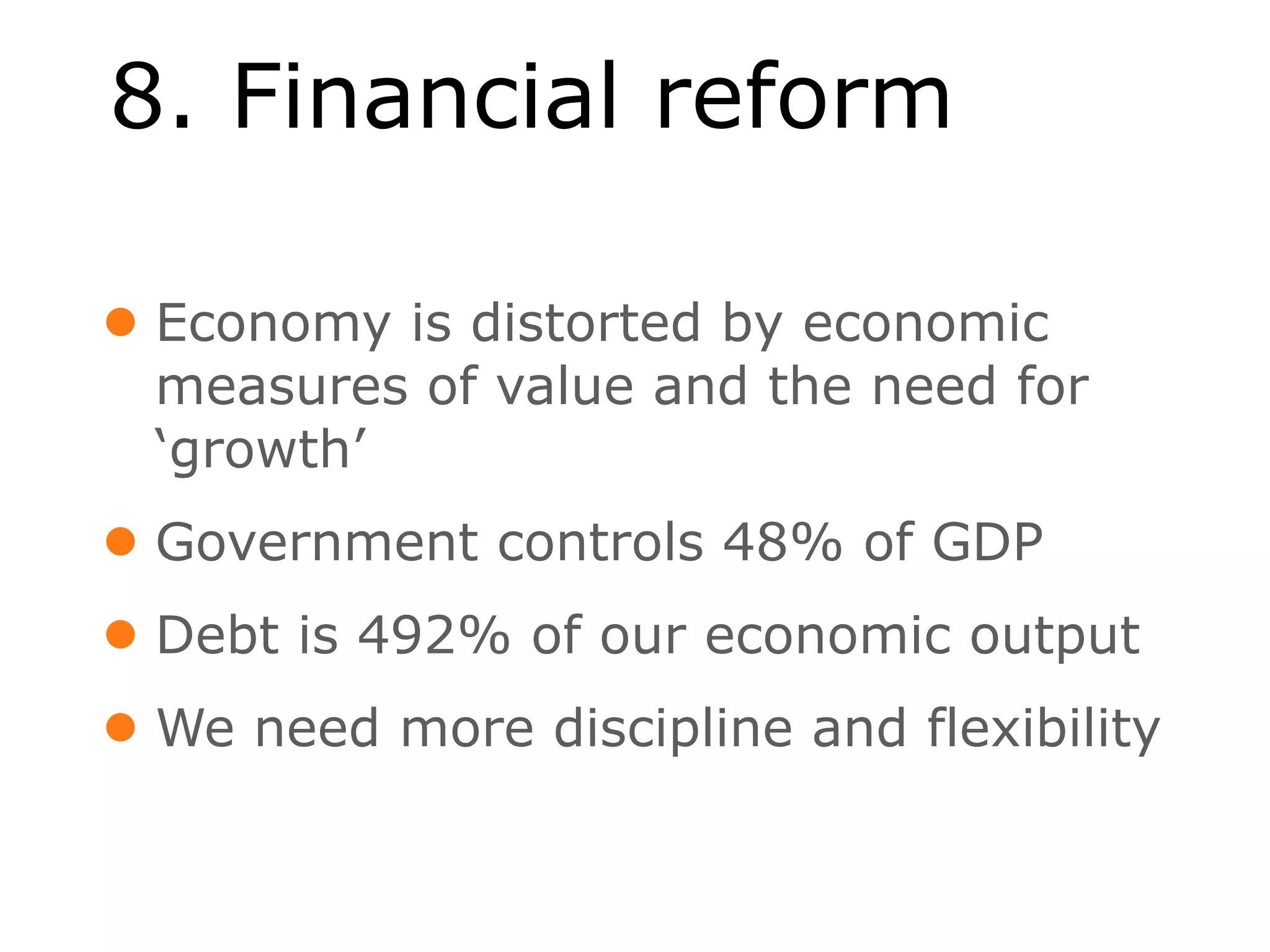The document discusses the complexities and challenges of personalisation within the welfare state, highlighting both its potential benefits and pitfalls. It critiques the current system for failing to truly empower individuals, particularly those with disabilities, while also addressing the impact of recent funding cuts on these communities. Key themes include the need for genuine independent living, community engagement, and structural reform to ensure fair access and support.































































